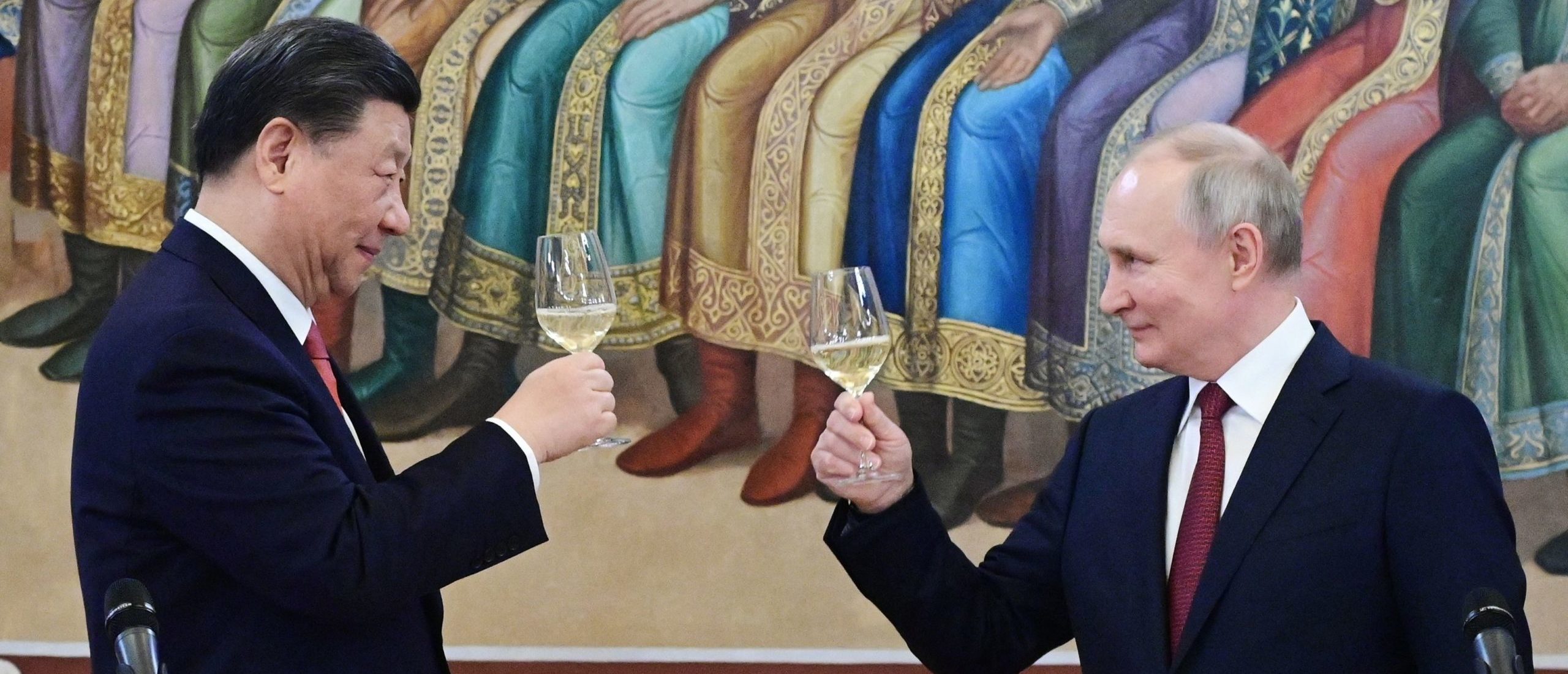U.S.-led sanctions targeting the Russian energy sector have failed to stall production of Russian oil, and oil exports continue to act as the main pillar of the Putin regime’s “war economy” despite significant revenue hits, experts told the Daily Caller News Foundation.
Following Russia’s invasion of Ukraine, sanctions and other Western efforts to avoid Russian oil initially resulted in a significant reduction in the country’s oil exports, but sales to non-Western countries, notably China and India, in March boosted Russian oil exports to their highest level since April 2020 at 600,000 barrels per day, according to CNN. While a Western price cap means that China and India often buy Russian oil at a significantly reduced price compared to international oil prices — Russia’s monthly oil revenue for March was down 43% year-over-year to $12.7 billion — they have given the Putin regime an economic “lifeline,” Nate Sibley, a Hudson Institute national security researcher, told the DCNF.
“If the purpose of sanctions was simply to demonstrate Western unity of purpose in supporting Ukraine and condemning Russian aggression, Putin was clearly surprised by the response and we can credit the Biden administration for the speed with which it coordinated with allies,” Sibley told the DCNF. “But if–as President Biden himself has said–the objective was to cripple Russia’s war economy by reducing the ruble ‘to rubble,’ that has clearly not yet transpired, though the export controls and other measures now in place will bite more severely this year.”
Of particular concern, Sibley said, is non-participating nations blending Russian oil with non-Russian supply, relabeling it and selling it to the West. Russian natural gas exports to Europe increased by 7.5% to 75.6 million cubic meters in March, primarily due to an increase in gas first piped to Turkey and then sent to Europe, according to Reuters.

Russian President Vladimir Putin and China’s President Xi Jinping make a toast during a reception following their talks at the Kremlin in Moscow on March 21, 2023. (Photo by PAVEL BYRKIN/SPUTNIK/AFP via Getty Images)
“Nature abhors an energy vacuum,” Dan Kish, senior research fellow at the Institute of Energy Research, told the DCNF, noting that China surpassed the U.S. in oil refining as the U.S. continues its pivot to renewable energy sources. Kish added that he “wouldn’t put much faith in official market numbers” for how much sanctions are impacting Russia’s oil revenue since he expects the money to eventually “work its way through the system” back to Russia. (RELATED: Biden’s Offshore Wind Push Faces New Headwind — Massive Turbines Breaking Down)
Chuck Devore, chief national initiatives office at the Texas Public Policy Institute, told the DCNF he expects the price cap and “biting” revenue loss to eventually push the country’s output back down. In early April, some nations in the Saudi-led oil cartel OPEC+ — of which Russia is a member — agreed to cut production in a bid to push prices up, although Russia was not one of them, according to Reuters.
“That said, the sanctions have been far from total and have been gradually increased, with the largest Russian banks initially left untouched and added sanctions on other parts of the Russian economy that earn hard currency only imposed a full year after Russia’s invasion of Ukraine,” Devore said. “American policymakers rely too heavily on sanctions, not fully appreciating how targeted nations can adapt.”
All content created by the Daily Caller News Foundation, an independent and nonpartisan newswire service, is available without charge to any legitimate news publisher that can provide a large audience. All republished articles must include our logo, our reporter’s byline and their DCNF affiliation. For any questions about our guidelines or partnering with us, please contact licensing@dailycallernewsfoundation.org.












